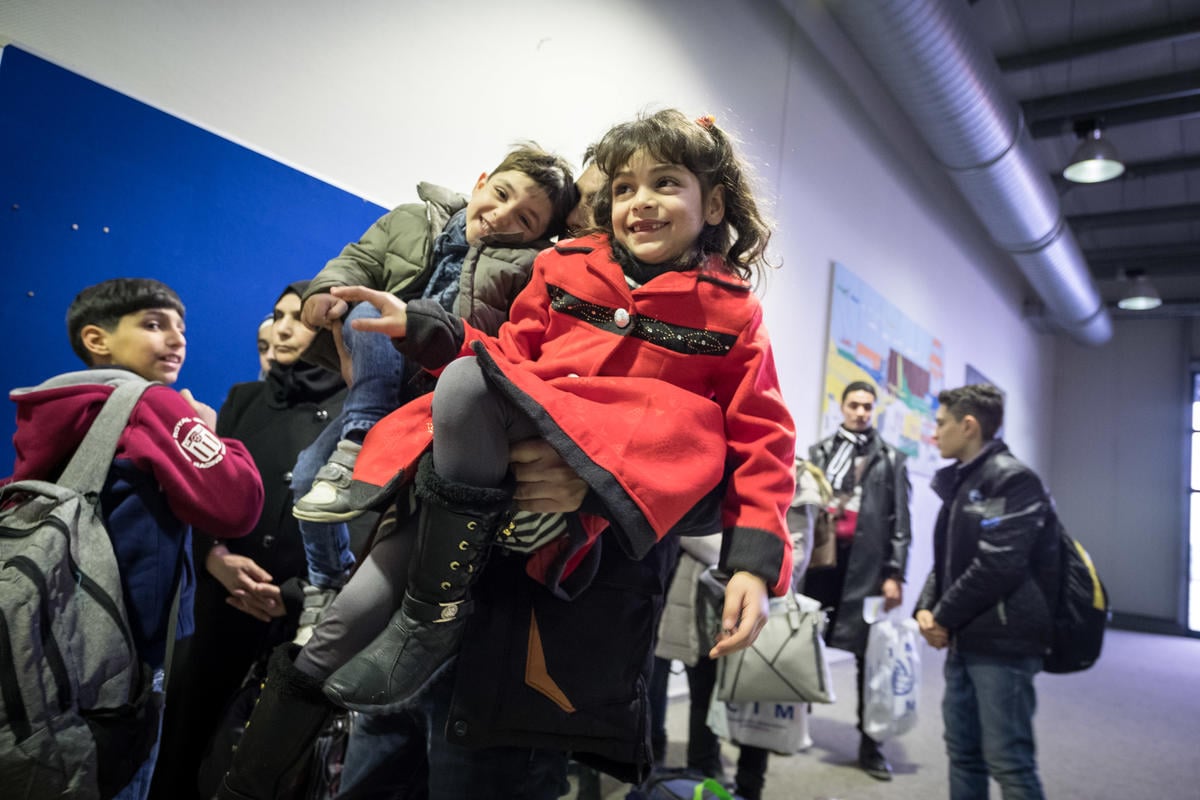European Union: harmonisation of asylum policies
European Union: harmonisation of asylum policies
The Ministers of Justice and Home Affairs (JHA) of the EU Member States are poised to take a big step forward in the process of harmonisation of asylum in Europe at their meeting in Brussels on 28 and 29 May. They are expected to adopt for the first time legally binding instruments of a common European asylum system. The Amsterdam Treaty, that came into force in May 1999, gives the EU five years to build such a common system. This is UNHCR's position on key issues communicated to the European Union:
One of the main instruments on the table is a Directive, drafted by the European Commission, introducing minimum standards for granting temporary protection (TP) in the event of a mass influx of displaced persons. Crises in the Balkans and Kosovo showed that it was necessary for Europe to develop a common emergency device to address situations when the usual individual screening and processing systems can no longer cope with the large number of arrivals.
Temporary protection is an exceptional measure, limited in time (proposed: maximum two years), in case of an exceptional situation. It is not a substitute for the individual refugee status determination. As many beneficiaries of temporary protection are genuine refugees, UNHCR has insisted that access to asylum procedures should be guaranteed, at the latest when the TP regime comes to an end. By the same token, beneficiaries of TP should receive a package of rights and benefits, including the reunification of scattered families. It is an essential concern for UNHCR that the right to family reunification be preserved in the final text. The Commission proposal includes these concerns, and UNHCR hopes that these will be reflected in the final adopted instrument after negotiations among the Member States.
The JHA Council will furthermore attempt to adopting two proposals tabled by the French EU Presidency in September 2000 aimed at combating smuggling and trafficking of people, by imposing stiff penalties against those who have facilitated the irregular entry of persons to the EU. Though sharing the concern of States about the increasing role of criminal organisations in trafficking and smuggling, UNHCR is weary that control considerations may overshadow the need to uphold the right to seek asylum from persecution. Many refugees have no option than to resort to smugglers to reach safety, and there is a long tradition of helping people flee for humanitarian reasons. The Member States have recognised that smuggling can take place for humanitarian reasons, but still disagree on the wording. UNHCR has urged the Member States to follow the definition laid down in the protocols of the UN Convention on Transnational Crime (adopted in December 2000 in Palermo) which states that smuggling is a crime when it is done with the purpose of obtaining financial gain. It would create a problem of consistency with international criminal law principles, if the EU were to opt for a formulation different from the one they agreed with in Palermo. Moreover, the proposed clause in the French Presidency text on smuggling as a crime is optional, leaving Member States the liberty whether or not to include it in their national legislation. UNHCR would at least wish to see a mandatory clause on this issue.
Another initiative from the French Presidency that may be adopted is a directive aiming to harmonise carrier sanctions. Most Member States have now established penalties in their national law against transport companies for carrying persons with no or insufficient documents into the country.
The danger is that such measures, which are aimed at curbing illegal immigration, may prevent persons at risk from leaving the place where they fear to be persecuted, or from arriving in a country to seek asylum, as transport companies are taking measures to stop people with forged or no documents even before they leave their country. UNHCR therefore has suggested that sanctions should not be imposed in the case of asylum seekers lacking the necessary documents for admission. A refugee may be forced to resort to forged documents in order to escape to safety.









